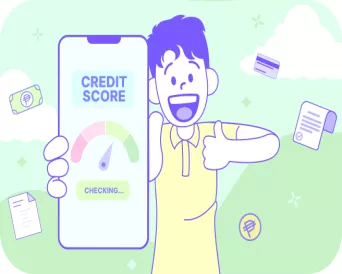47.1% of Filipino adults borrow money. And banks are pretty much the most popular financial institutions around. The history of banks has stretched as far back as the ancient Mesopotamian times (yes, they’re that old), wherein certain locations such as palaces and temples would be the center of lending activities.
Today, banks are renowned organizations where customers may deposit or borrow money. In more recent times, digital banks have even popped up and operate mainly on the cloud. Banks have been around for so long and evolved so much that it’s the first place many people think of when getting a loan.
But is a bank loan the one for you? Here, we dive deep into banks and bank loans in the Philippines so you can check its pros and cons, how to actually get one, and even some tips for approval!
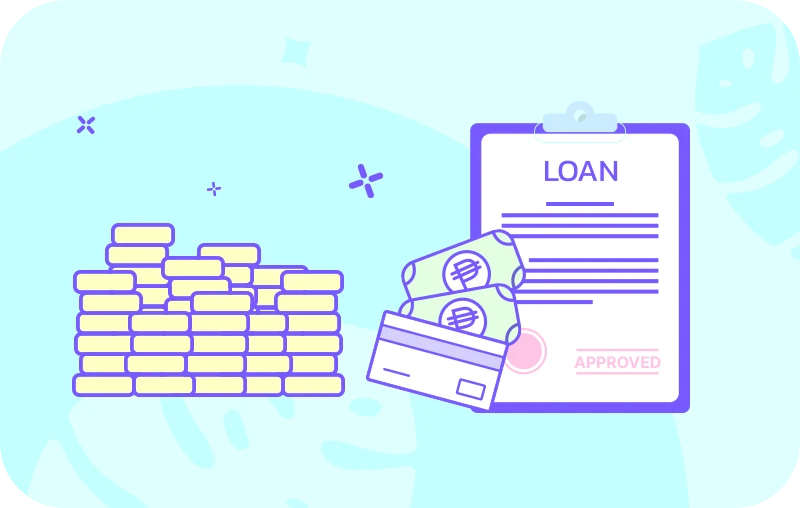
Table of Contents
Always Getting Rejected for Loans?
You just need a better credit score. Start building with Tonik Credit Builder Loan!
TOC- Table FInd
What is a Bank Loan?
When you get a bank loan, you’re basically borrowing money from a bank of your choice. There are terms and conditions of the loan that you agree on with the bank, and you’d have to pay interest either monthly or annually. These can either be secured (with collateral) or unsecured (no collateral).
The greatest thing to keep in mind about traditional bank loans is that they’re cheaper than loans that you find elsewhere, like digital lending platforms, pawnshops, credit card cash advance, etc. A not-so-great thing is that they’re hard to get due to their extremely meticulous approval process. More on and pros and cons later!
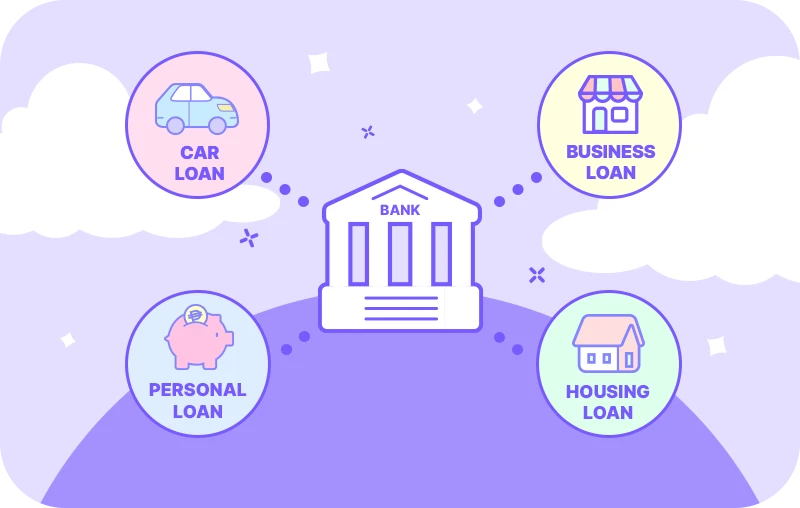
TOC- Table FInd
Types of Bank Loans in the Philippines
Before applying, always, always look up the different types of loans that are suited to your needs. Here are some of the popular bank loans you can find in the country.
- Personal Loan – This is a common type of loan that may either be secured or unsecured. Personal loans can be used for many purposes, like medical expenses, house renovations, etc., compared to other types that usually have a specific one. You can get a personal loan for as low as PHP 20,000 and as high as PHP 2 million.
- Housing Loan – This is the kind of loan you get when you’re looking at purchasing property, renovating a house, building a new one, getting a new lot, paying off a mortgage, and other similar reasons. Since housing loans involve huge amounts of money, requirements are stricter than usual and need a lot of documentation.
- Car Loan – Similar to the housing loan, this one is for people who are interested in getting a sweet new ride and make payments easier for the buyer, or even other reasons like using your car as collateral for a loan, acquiring a better deal on a car loan you already have, etc. Car loans usually last about 5 years maximum.
- Business Loan – As the name implies, this loan is what you use to start a business or fund your existing one. There are different types of business loans available in the market, including long- and short-term commercial loans, and small business loan programs
- Salary Loan - This loan is typically based on your regular income or salary. It's repaid in fixed monthly installments, with the loan amount often deducted directly from the borrower's paycheck, making it a convenient and predictable way to access funds.
- Overseas Filipino Worker (OFW) Loans - This loan type is designed for Filipinos working abroad. It offers them access to funds, usually repaid in fixed monthly installments, helping OFWs meet various financial needs.
Major Banks Offering Loans
Nowadays, you have a seemingly endless list of banks and lenders to get a loan from. That includes some of the major banks in the country that you’ve probably known for years! Here are a few options:
- BDO Unibank - BDO offers a wide range of loans, including personal, home, auto, and SME loans. They are one of the largest and most prominent banks in the Philippines, known for their competitive loan terms and accessibility.
- Metrobank - Metrobank provides various loan products, from personal and home loans to auto and business financing. They are a trusted choice for borrowers seeking flexible lending options and competitive interest rates.
- Bank of the Philippine Islands (BPI) - From BPI, you can get personal, home, and auto loans. Their loans come with tailored solutions, making them a preferred choice for many Filipinos.
- Landbank - Landbank sets itself apart by specializing in agricultural and development financing. On top of housing and business loans, they also have loans to support the agricultural sector and economic development projects in the country. They play a crucial role in fostering rural and agribusiness growth.
- Security Bank - Security Bank offers personal loans, housing loans, and auto loans with competitive rates and favorable terms. They also have a wide variety of loans for businesses such as their Business Express Loan, Business Mortgage Loan, Truck Loan, and Auto Fleet Financing.
TOC- Table FInd
What is the Lending Interest Rate for loans offered by Banks in the Philippines?
Average interest rates for loans from banks is 7.29% as of April 2023. While bad loans, or the amount of unpaid loans in the Philippines, hit P427 billion in the same period.

TOC- Table FInd
Pros and Cons of Bank Loans
Pros of Bank Loans
- Low interest rates – Banks are among the institutions able to offer low interest rates due to their high standards for loan approvals and meticulous processes. If you’re one of the lucky few to get one, you can enjoy this for yourself.
- Predictable monthly payments – Banks also usually offer fixed payments, so you’ll know what you’ll be paying for every month. At least this way, you’d be able to budget better and have good foresight when it comes to your expenses.
- Helps build credit – One good thing about getting a loan with a traditional bank is that it builds credit history, especially when you pay your dues on time. Again, it could go the other way if you don’t, so make sure you always pay on schedule.
- Banks are trustworthy and regulated – As you know, banks are one of the most legit (if not the only legit) financial institutions around, so you know you’re safe in their hands. Plus, they’re regulated by the BSP, so if anything goes wrong, you can always raise it to the proper authorities.
Cons of Bank Loans
- Lots of paperwork required for application – The application process for banks is quite lengthy, and a lot of requirements would be needed. This also normally involves bank visits and going face to face with bank employees and personally submitting everything to them. It might be a little bit of a hassle for some borrowers.
- Long processing time – Processing could also take days and sometimes weeks because some traditional banks do manual, often meticulous checks before approving a loan.
- Need for collateral – Bank loans often require collateral, which is why interest rates offered are low. Not too good for those with no assets or with issues using their assets for this purpose.
- Need for good credit history – You normally need some form of credit history to get a bank loan, so if you’re a first timer, you can kiss this option goodbye.

TOC- Table FInd
Bank Loan Requirements in the Philippines
Before you even think of applying for a bank loan, luv, you need to make sure you are eligible and also have all the requirements that you need to show. This is so banks can gauge your stability and financial capability of paying a loan back. Here are common requirements of traditional banks for borrowing money.
Eligibility Requirements:
- Must be at least 21-65 years old
- Must be a Filipino residing in the Philippines
- Must have a working landline number
- Must be employed or self-employed with a minimum amount of monthly income (this would depend on the bank or type of loan being offered)
Documentary Requirements:
- Valid government ID
- Documents that prove income, such as your latest income tax return (ITR), Certificate of Employment, or latest 1 month pay slip
- For those self-employed, it’s a little tougher, because you’d need to show an Audited Financial Statement (AFS), Business Permit, DTI Certificate or SEC Registration, a list of references, your latest bank statements from the last 3 months, and your latest GIS if you have a corporation
Again, requirements would depend on the type of loan you’re getting. Obviously, if your loan requires collateral, then another need would be an asset that you can present as collateral, and all the documents that come with it, like a title or deed.
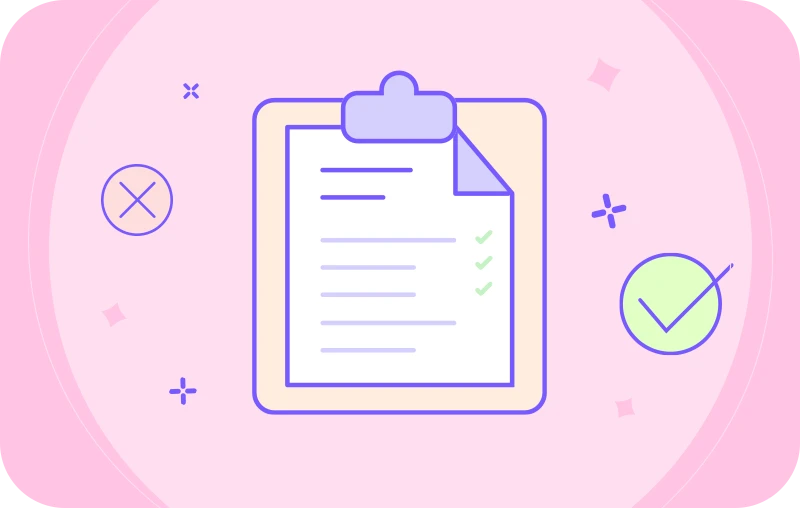
TOC- Table FInd
How to Apply for a Personal Loan
- Assess your financial capabilities – Again, we want to remind you that a loan is a commitment. So, before anything, you need to check if you’re financially ready for that. Check how much you earn every month and how many expenses you’re accountable for, and then see if a loan is something you can get and responsibly pay off.
- Look up different loans and get the right one for you – There are multiple personal loans out there being offered by different banks. It’s good to do your research or consult with lenders beforehand and see the one that’s perfect for you. Then when you’ve found it, do this next step.
- Go to the website of your preferred bank and submit an application form there. Attach the needed documents should it require digital copies – Most banks have their application platforms on their websites now, so you should be able to submit yours online. Make sure to submit the digital documents too!
- Wait for confirmation from your bank – Whether it’s via SMS, email, or call, wait for the bank to confirm that they’ve received your loan application.
- Start loan processing – The bank will now do its checks, including credit history, assets, appraisals, etc. For banks, this may take a while, so sit tight and cooperate with them should they need extra documents or anything else.
- Close your loan – Got approved? YASS! Review your loan terms and information, and if everything looks good, sign all the documents. Then get your loan disbursement! Woohoo!
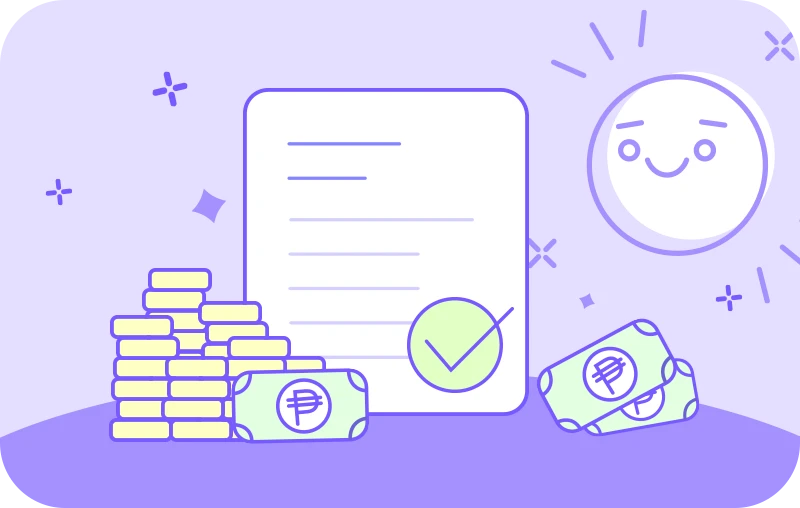
TOC- Table FInd
Tips to Get Approved for a Bank Loan
- Have a high credit score – Banks always check your background along with your credit history before they approve your loan. Your credit score is a testament to your financial responsibility and how diligent you are with your dues.
Before you apply for a loan, you have to ensure that you have a good credit score. If you feel you don’t, you can try improving it by doing things like paying your bills early or on time and spending less than your credit limit. Check out more tips and information on credit scores here. - Find the bank loan that’s best for you – Do your research and find the loan that works for you. Understand what secured loans and unsecured loans are and ask yourself different things, like what you’re using the loan for. Is it for tuition fees, business, or other reasons? Do you have an asset that you can use as collateral, like a car or property?
There are lots of different types of loans out there that are suited for your needs and can work with what you have. Pick a bank that you trust, then look through all the kinds that they’re offering. - Borrow the amount you need only – For this, again, you need to reflect and ask yourself how much you really need and what it’s for. Plus, you also need to gauge your ability to pay back a loan. As we mentioned before, loans are a commitment.
If ever you borrow way too much than you can chew and the bank sees that you aren’t able to pay them back, then your application may be rejected. So, only loan the money that you truly need to have better chances of approval. It helps to compute your debt-to-income ratio. - Be employed and make sure you’re stable – Banks need to check not just your credit history, but also your employment—whether you have a stable source of income or not. Are you employed or at least self-employed? Great, then prep your documents to prove it!
If not, then it’s fine, but you would have to forgo borrowing from a bank as this is one of the main requirements to get a loan from them. - Prepare all the documents needed beforehand – Banks are known for meticulously checking documents, hence long processing times. Before applying, get ready with the requirements!
- Have enough savings in your bank accounts – Banks may ask you to submit one or the other: your latest pay slip or your latest bank statement. To prove your financial capacity, have enough savings in your bank and make sure you regularly place funds there.
- Consult with your local bank – Not sure where to even begin or don’t have the time to do all the research? Then visit your local bank or call their customer service for a consultation and they can surely help you see which loan is best for you, as well as tell you which loan you will most likely be approved for.
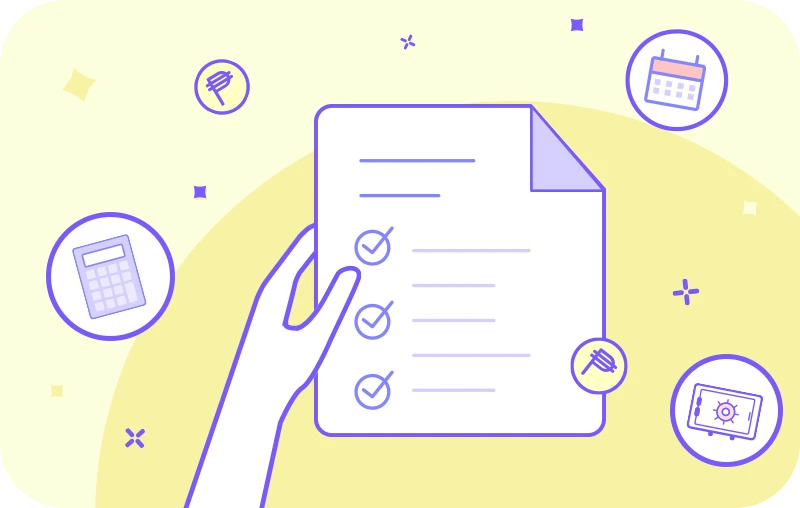
TOC- Table FInd
Bank Loan FAQs
TOC- Table FInd
What is the minimum/maximum amount you can borrow from banks?
It would really depend on the type of loan you get, but the lowest amount you can borrow from a bank would be around PHP 20,000 (banks like Citibank and BPI offer loan amounts this low), while the maximum amount is around PHP 2 million.
TOC- Table FInd
What happens when you don’t pay off your bank loan?
Lots of unfavorable things, luv! This is why you need to be careful when taking out a loan and making sure you’re able to pay the bank back. Here are possible scenarios of what might happen when you don’t pay off your loan:
- Banks will keep calling you or contacting your family should you choose to ignore their means to reach you.
- Your credit score will worsen. It’ll be recorded on your credit history and destroy your chances of getting more loans or other financial products in the future.
- You will have to pay more fees and penalties. If you miss payments, you’ll be penalized and just be spending even more money on top of the loan you already owe.
- If you have given the bank collateral, then they might repossess it if you can’t pay back your loan. For example, if you made your property your collateral, then the bank will eventually own it and you will be forced to move out.
- You can lose money in your bank account if the bank loan you got is from the same one as your account. They can take the money from there to pay off your loan.
- The bank could sue you. Should they win the case, then the court will assist them in getting your loan repaid, such as selling assets that weren’t surrendered as your collateral.
TOC- Table FInd
What is the repayment tenure for personal loans?
Once again, this depends on the loan amount you’re targeting to borrow. The bigger the amount, then the longer the tenure may be. Loan tenures may range from 12 to 60 months. For smaller loans, 6 months would be shortest duration.
Related: Top Online Loan Repayment StrategiesTOC- Table FInd
Do you need to be employed to qualify for bank loan products?
Yes. Since banks are extremely strict and meticulous in checking your background and your ability to pay back your loan, then you need to be employed and have a stable source of income. Mostly all bank loan requirements involve an Income Tax Return, Certificate of Employment, or the latest pay slip.
If you’re unemployed, the chances of being approved are close to 0. For those who are self-employed, you can still be approved for a bank loan, of course, but you would have to send a lot more documents to the bank for checking. If you don’t have a stable source of income, then best look at other lending platforms instead!
Not sure about traditional bank loans? There are always digital banks, which involve an easier application and a faster turnover time! An example is Tonik, which has loans such as Quick Loan and Shop Installment Loan. Doesn’t hurt to check them out, so go do so now!
Sources:
- Philippines Bank Lending Rate, 1976 – 2022 | CEIC Data
- Bank Loans - Economics Help
- The Basic Loan Process - The Heideman Group
- Types of Bank Loans in the Philippines | Lumina Homes
- Follow These 12 Personal Loan Tips If You Don't Want to be Rejected (Moneymax)
- Loan for Freelancers in the Philippines: Options and Tips for Fast Approval (Moneymax)
- Domestic Interest Rates - BSP





